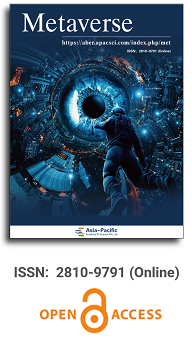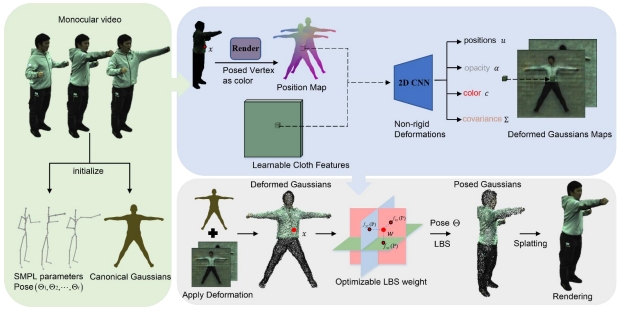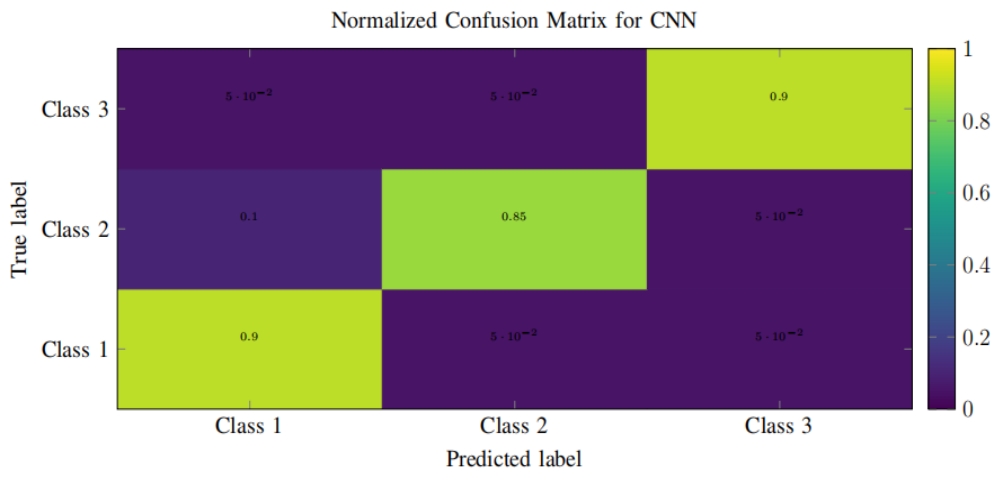
Asia Pacific Academy of Science Pte. Ltd. (APACSCI) specializes in international journal publishing. APACSCI adopts the open access publishing model and provides an important communication bridge for academic groups whose interest fields include engineering, technology, medicine, computer, mathematics, agriculture and forestry, and environment.



Empirical insights into AI-assisted game development: A case study on the integration of generative AI tools in creative pipelines
Vol 5, Issue 2, 2024
Download PDF
Abstract
This study conducts an empirical exploration of generative Artificial Intelligence (AI) tools across the game development pipeline, from concept art creation to 3D model integration in a game engine. Employing AI generators like Leonardo AI, Scenario AI, Alpha 3D, and Luma AI, the research investigates their application in generating game assets. The process, documented in a diary-like format, ranges from producing concept art using fantasy game prompts to optimizing 3D models in Blender and applying them in Unreal Engine 5. The findings highlight the potential of AI to enhance the conceptualization phase and identify challenges in producing optimized, high-quality 3D models suitable for game development. This study reveals the current limitations and ethical considerations of AI in game design, suggesting that while generative AI tools hold significant promise for transforming game development, their full integration depends on overcoming these hurdles and gaining broader industry acceptance.
Keywords
References
- Zweig B. Forgotten Genealogies: Brief Reflections on the History of Digital Art History. International Journal for Digital Art History. 2015; (1).
- Mikalonytė ES, Kneer M. Can Artificial Intelligence Make Art? Folk Intuitions as to whether AI-driven Robots Can Be Viewed as Artists and Produce Art. ACM Transactions on Human-Robot Interaction. 2022; 11(4): 1–19. doi: 10.1145/3530875
- Li S, Zhou Y. Pipeline 3D Modeling Based on High-Definition Rendering Intelligent Calculation. Mathematical Problems in Engineering. 2022; 2022: 1–11. doi: 10.1155/2022/4580363
- Tchomdji LOK, Park SJ, Kim R. Developing Virtual Tour Content for the Inside and Outside of a Building using Drones and Matterport. International Journal of Contents. 2022; 18(3): 74–84.
- Harrington MCR, Jones C, Peters C. Course on virtual nature as a digital twin: botanically correct 3D AR and VR optimized low-polygon and photogrammetry high-polygon plant models. ACM SIGGRAPH 2022 Courses. 2022; 1–69. doi: 10.1145/3532720.3535663
- Brittain B. Artists take new shot at Stability, Midjourney in updated copyright lawsuit. Reuters. Available online: https://www.reuters.com/legal/litigation/artists-take-new-shot-stability-midjourney-updated-copyright-lawsuit-2023-11-30/updated-copyright-lawsuit-2023-11-30/ (accessed on 5 June 2024).
- Schmidt R, Isenberg T, Jepp P, et al. Sketching, scaffolding, and inking: a visual history for interactive 3D modeling. In: Proceedings of the 5th international symposium on Non-photorealistic animation and rendering; 2007. doi: 10.1145/1274871.1274875
- Madhavadas V, Srivastava D, Chadha U, et al. A review on metal additive manufacturing for intricately shaped aerospace components. CIRP Journal of Manufacturing Science and Technology. 2022; 39: 18–36. doi: 10.1016/j.cirpj.2022.07.005
- Cheng R, Wu N, Chen S, et al. Reality Check of Metaverse: A First Look at Commercial Social Virtual Reality Platforms. In: Proceedings of the 2022 IEEE Conference on Virtual Reality and 3D User Interfaces Abstracts and Workshops (VRW); 2022. doi: 10.1109/vrw55335.2022.00040
- Korbel JJ, Siddiq UH, Zarnekow R. Towards Virtual 3D Asset Price Prediction Based on Machine Learning. Journal of Theoretical and Applied Electronic Commerce Research. 2022; 17(3): 924–948. doi: 10.3390/jtaer17030048
- Zhang Y. Cross-Platform Methods in Computer Graphics That Boost Experimental Film Making. Available online: https://scholarworks.rit.edu/cgi/viewcontent.cgi?article=12190&context=theses (accessed on 5 June 2024).
- Favreau J. The Mandalorian. Disney; 2019.
- Anderson K. The mandalorian’s virtual sets are wild. Nerdist. Available online: https://nerdist.com/article/mandalorian-virtual-production-star-wars/ (accessed on 5 June 2024).
- Dent S. See how ‘the mandalorian’ used Unreal Engine for its real-time digital sets. Engadget. Available online: https://www.engadget.com/2020-02-21-mandalorian-ilm-stagecraft-real-time-digital-sets.html (accessed on 5 June 2024).
- Ronfard R. Film Directing for Computer Games and Animation. Computer Graphics Forum. 2021; 40(2): 713–730. doi: 10.1111/cgf.142663
- Cohen JL. Film/Video-Based TherapyTM and Virtual Reality. In: Film/Video-Based Therapy and Trauma. Routledge; 2022. pp. 3–13. doi: 10.4324/9781315622507
- Kuusela V. 3D modeling pipeline for games. Turku University of Applied Sciences; 2022.
- Hevko I, Potapchuk O, Lutsyk I, et al. The Method of Teaching Graphic 3D Reconstruction of Architectural Objects for Future IT Specialists. In: Proceedings of the 1st Symposium on Advances in Educational Technology; 2020. doi: 10.5220/0010921800003364
- Open AI. Dall·E 2. DALL·E 2. Available online: https://openai.com/dall-e-2/ (accessed on 5 June 2024).
- Blance A. Using AI to generate 3D models, fast! Medium. Available online: https://towardsdatascience.com/using-ai-to-generate-3d-models-2634398c0799 (accessed on 5 June 2024).
- Ha H, Song S. Semantic abstraction: Open-world 3d scene understanding from 2d vision-language models. In: Proceedings of the 6th Annual Conference on Robot Learning; 2022.
- McKenzie T. Kaedim: A cool AI for turning 2D images into 3D models. Available online: https://80.lv/articles/kaedim-a-cool-ai-for-turning-2d-images-into-3d-models/ (accessed on 5 June 2024).
- Salian I. Nerf research turns 2D photos into 3D scenes. NVIDIA Blog. Available online: https://blogs.nvidia.com/blog/2022/03/25/instant-nerf-research-3d-ai/ (accessed on 5 June 2024).
- Fiske T. What does it take to AI-generate VR games? Immersive Wire. Available online: https://www.immersivewire.com/p/take-aigenerate-vr-games (accessed on 5 June 2024).
Supporting Agencies
Copyright (c) 2024 Andrew Begemann, James Hutson
License URL: https://creativecommons.org/licenses/by/4.0/

This site is licensed under a Creative Commons Attribution 4.0 International License (CC BY 4.0).

Prof. Zhigeng Pan
Professor, Hangzhou International Innovation Institute (H3I), Beihang University, China

Prof. Jianrong Tan
Academician, Chinese Academy of Engineering, China
Conference Time
December 15-18, 2025
Conference Venue
Hong Kong Convention and Exhibition Center (HKCEC)
...
Metaverse Scientist Forum No.3 was successfully held on April 22, 2025, from 19:00 to 20:30 (Beijing Time)...
We received the Scopus notification on April 19th, confirming that the journal has been successfully indexed by Scopus...
We are pleased to announce that we have updated the requirements for manuscript figures in the submission guidelines. Manuscripts submitted after April 15, 2025 are required to strictly adhere to the change. These updates are aimed at ensuring the highest quality of visual content in our publications and enhancing the overall readability and impact of your research. For more details, please find it in sumissions...






.jpg)
.jpg)

